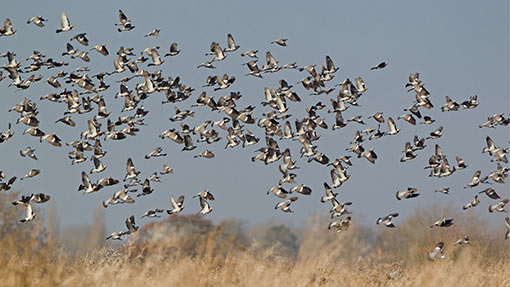‘Shoo, don’t shoot’ farmland bird proposals rejected

Natural England has rejected plans to ask farmers to “shoo before they shoot” certain birds that damage crops.
Farmers and landowners ridiculed the consultation, which proposed changes to gun laws under general and class licences.
The amendments would have required farmers to shoo away certain crop pest species, such as woodpigeons and crows, and only shoot them as a last resort.
The suggestion in the consultation, which ended in May, was that anyone using the licence should be able to show that they had tried non-lethal methods of control such as scaring before resorting to the gun.
The NFU said the consultation proposed changes to licence conditions, which would have been difficult to implement in law, making them unenforceable.
It said the changes would also have placed a “greater burden” on licence users “without any clear benefit”.
NFU countryside adviser Claire Robinson said: “Farmers up and down the country need to control certain bird species on their land as they can cause serious damage to growing crops, particularly oilseed rape, feeding on young plants before they are established.
“Shooting is just one of the tools used alongside others including scarecrows, imitation animals and even falconry.
“So we welcome Natural England’s sensible decision not to complicate the general licence requirements.”
Read also: Natural England consults on shooting of crop pests
The Countryside Alliance also welcomed the decision, which will not restrict pigeon shooting.
Sir Barney White-Spunner, Countryside Alliance executive chairman, said: “The proposal that people should have to scare pigeons before shooting them was always complete nonsense, so we welcome the fact that Natural England has largely listened to the concerns and experience of those who manage the countryside.
“General licences are there to enable necessary management and it is vital that Natural England continues to listen to those responsible for that management.”
But the alliance highlighted a number of proposals where Natural England had not taken a final decision, particularly with regard to the use of traps.
“We hope that Natural England will apply to these outstanding issues the same evidence-based, common-sense approach that appears to have prevailed so far,” added Sir Barney.
